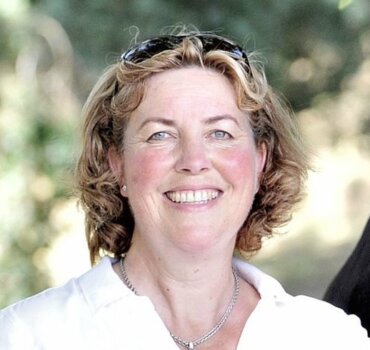
Sandra Faulkner says here seems to be an obsession in Wellington with bigger is better.

Sandra Faulkner says here seems to be an obsession in Wellington with bigger is better.
Bigger is not necessarily better – and probably won’t be in the case of the proposed new mega water services entities, Federated Farmers says.
While there are problems with three waters delivery and infrastructure and change is necessary in some areas, the approach outlined in the Water Services Entities Bill is deeply flawed, Feds national board member and local government spokesperson Sandra Faulkner has told a select committee.
She has also fired a shot at the level of central government policy which is changing the local government, health and education sectors.
Federated Farmers wants the pause button hit on the Three Waters reforms to allow room for more community discussion and analysis of alternative set-ups.
“We believe strongly in keeping the local in local government and we are strongly opposed to a centralisation agenda which seems to be driving so much policy, not just in water services, but also in RMA reform, health sector reform, polytechnics…the list goes on.
“There seems to be an obsession in Wellington with bigger is better and that bigger entities deliver economies of scale that will drive down costs,” she said.
She said analysis done for the Communities For Local Democracy group of councils by economic consultants Castalia “has taken apart the modelling relied upon by the Government and laid basically laid bare the flaws in its approach”.
The Government’s own Infrastructure Commission has found in a recent research note that there was no relationship between the size of a council and the efficiency of council activities including roading, building consents, and governance, she argued.
“Will the likes of roading, waste management and building consents be next for centralisation away from local councils?”
Plenty of farmers were supplied by council owned and operated water supplies, and not just rural water supplies which may revert to community ownership and operations. There were also a lot of farms which adjoined or were close to urban areas and were supplied by town and city water supplies.
“Will the likes of roading, waste management and building consents be next for centralisation away from local councils?”
“Many farmers, as significant ratepayers and strongly rooted in their local communities, still care deeply about our councils and what they see as an attack on local democracy.”
She feared the rural voice would be diluted by the centralisation of essential services, and local councils would be “hollowed out”.
“There seem to be a lot more bureaucracy and cost associated with the four entities’ multi-tiered governance arrangements and the various advisory groups and forums that will be set up to try and replicate what we already have – local voice and accountability.”
Federated Farmers argues the pause button should be hit on the 3 Waters reforms to allow room for more community discussion and analysis of alternative set-ups that will not be so remote from the people they serve.








